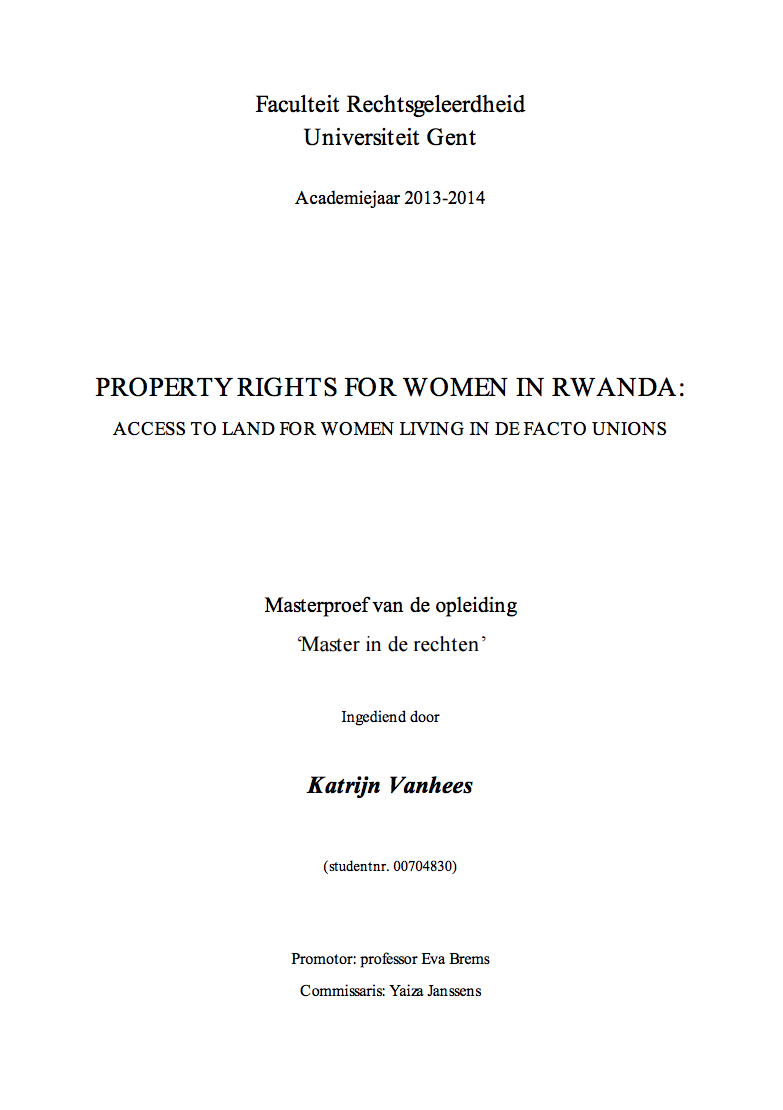To say that access to land is one of the most important conditions for the
empowerment of African women, would be an understatement. The cultivation of land is one
of the main sources of income and economic wealth depends strongly on a well-elaborated
system of land tenure. However, developing and protecting land rights1
for women in mainly
male-dominated societies is a long-term work. Even though law initiatives2 may guarantee a
de jure equal access to land for women, the outcome highly depends on the way the culturebound
relationship between women and men is constructed.
In Burkina Faso, for instance the proverb “a woman’s field is made at night” illustrates
the difficulties women experience and the limited bargaining space they have when claiming
land. The saying can be interpreted in two different ways. First of all, it addresses the issue of
women who are being forced to cultivate their own fields during the night since they have to
work on their husbands’ fields at daytime. Moreover, the saying means that men can claim
their land rights in broad daylight because their claims to land are not contested in society,
whereas women’s bargaining space is limited to the association with their husband. Thus,
they can only bargain in private spheres during nighttime because women “will know how to
obtain what they want.”3
Therefore, women’s position in society can be improved by granting women equal
rights to land. Nevertheless, one must be cautious and keep in mind that creating formal
rights does not automatically mean that these legal provisions are translated in reality. Legal
initiatives can result in ‘paper’ rights if societies are not eager to implement or respect them.
Therefore, sensitisation and decisive judicial system are known as important implementation
mechanisms. Without denying the importance of correct implementation of formal rights, this
dissertation will merely focus on rights that remain unprotected, neither by law nor by culture
or tradition.
Following argument can explain why improving land rights for women is such a
complex process to realize. The reasoning comes down to a vicious circle. In order to throw
their weight about land rights, women should have a strong position in society to lobby. This
objective can only be reached when women can become economically more independent
instead of relying on affiliation with her family or husband. In this way, they not only have
economic agency but also gain a stronger position in the household and on a broader
governmental level. However, in order to increase their economic power, one of the key
objectives should be the improvement of female access to land. In addition, the process of
bargaining must also be seen in the sociological context of land tenure. Land regulations are
a reflection of the power structure in a society. (...)
Property Rights for Women in Rwanda: Access to land for women living in de facto unions

